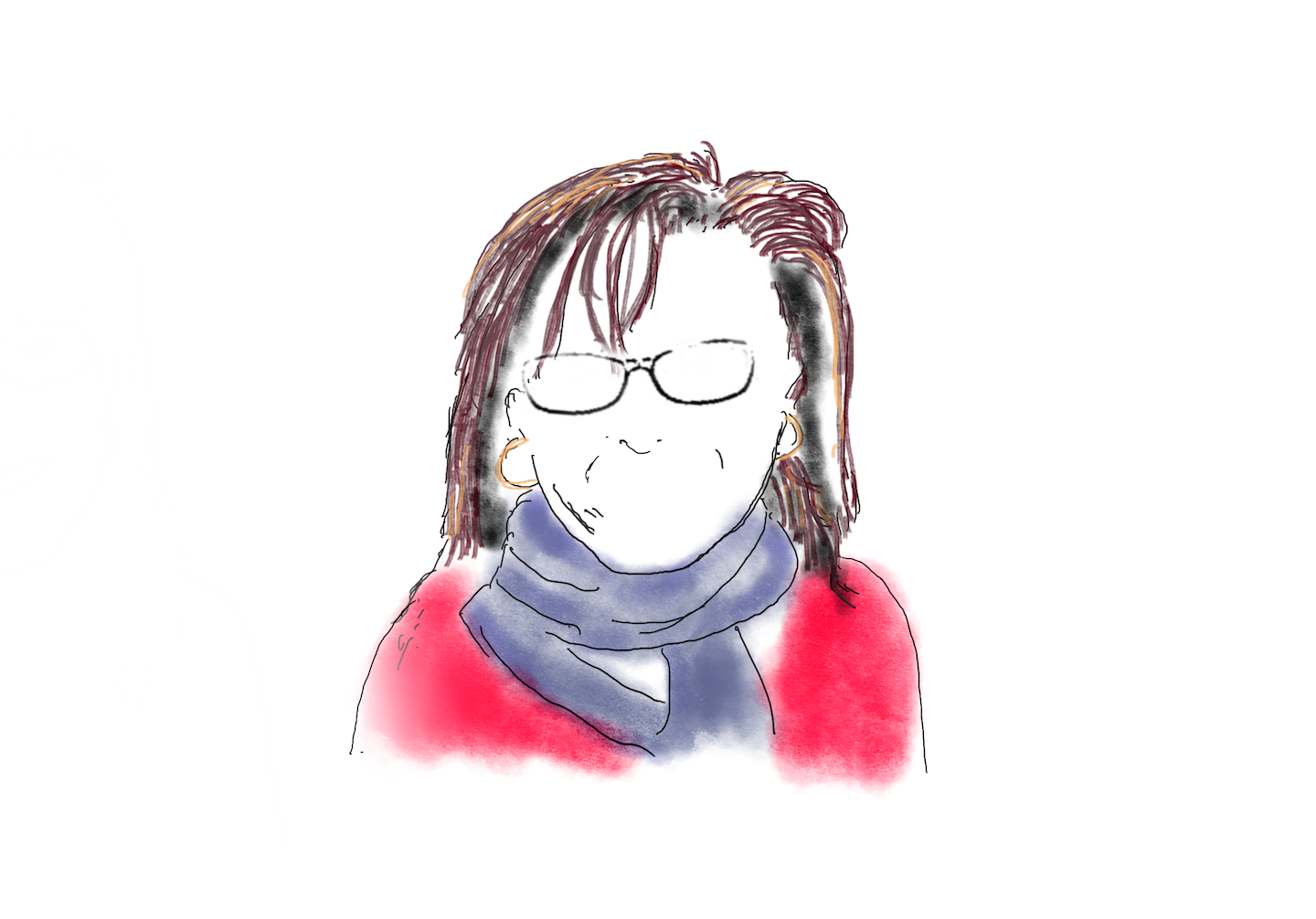Professor Page Herrlinger: a nuanced perspective
April 1, 2022
 This
piece represents the opinion of the author
.
This
piece represents the opinion of the author
.
 Karam Sutham
Karam SuthamAs an Associate Professor of History and Chair of the Russian Department at Bowdoin, Professor Page Herrlinger has been a vibrant member of the Bowdoin community since 1998.
She earned a bachelor’s from Yale University and her master’s and doctorate from the University of California, Berkeley. Herrlinger’s scholarship focuses on 18th to 20th century Russian and Soviet history.
Herrlinger had never attended or instructed at a liberal arts college before coming to the College. However, choosing to teach at Bowdoin wasn’t a hard decision.
“I don’t know anyone who wouldn’t,” Herrlinger said.
Now, Herrlinger jokes that she has become what she terms a “Bowdoin booster.” In years past, she has tried to convince her four kids to attend Bowdoin.
Her forthcoming book examines the life and impact of charismatic Russian preacher Brother Ioann Churikov. She hopes that by reconstructing Churikov’s life and influence, more people will understand aspects of Russia that they hadn’t known before.
“As a researcher, I’ve spent a lot of time in Russia, and I’ve always had a very strong affinity for the culture. But I feel like Americans in general just don’t really get it,” Herrlinger said. “So I’ve looked for ways to help bridge that gap in my work between what I know about Russia and what I think most of my students and colleagues know about it, so I’m hoping this book will help.”
Herrlinger has noticed many things about Bowdoin students during her 24 years of teaching at the College, and her words of advice remain as relevant as ever.
“I know students are worried about things like ‘what are they going to do after Bowdoin? Is there a degree that will set them up to succeed?’ And that’s a real concern. But I think success comes when you do what you love, and you’ll find a way to make it work,” Herrlinger said. “I know some students struggle to figure out what that [interest] is or they might feel torn between two different things or maybe they don’t feel particularly passionate about any one thing. But then I would just say you need to explore more, because you will find it.”
As someone whose biggest concern was how to pay her rent after getting out of college, Herrlinger relates to how students feel.
“Be open to learning in whatever way. Bowdoin teaches you not only the importance of learning, but how to know yourself as a learner and as a student of not only academics but [in] the world,” Herrlinger said.
“It’s important to continue thinking of yourself as a learner when you get out of college and know that even if you end up in a job that was like my first job, just to pay the rent, that you’re still learning and can still find really useful things to carry away from that job as you move more towards the things that you might actually want to put your heart and soul into,” she added.
Following the Russian invasion of Ukraine, Herrlinger has used her study of Russia, which began while Russia was still the Soviet Union, to develop a nuanced perspective on the conflict. She reflected on how the invasion itself was shocking and devastating, but in retrospect somewhat predictable under Putin’s regime.
“I think another thing that has been surprising is just the way in which the invasion has brought Ukrainians together and the kind of resolve and unity and even hope that they have shown toward their country. I’ve been in awe of them for that,” she said.
She also discussed how the Putin administration has worked for the past two decades to push back on the ability of the Russian people to voice their opposition to the war, despite many Russians’ devastation over the war’s outbreak. Herrlinger sees a lot of parallels between the West and Russia.
“This war has made it really clear that [a] liberal Russia[n population] still exists, and there are people there that share a lot of the same values that we have in the West,” Herrlinger said. “[Russians opposing Putin and the invasion of Ukraine] have just been marginalized and in silence, but they’re in great danger right now. So that’s just heartbreaking.”
When asked what Bowdoin students can do to get involved, Herrlinger first addressed the Ukrainian refugees who need extensive and varied support, especially financial, as well as Russians who have left their country because of the conflict.
“We should also make sure that we don’t allow the very fraught political landscape in this country to oversimplify what’s going on there. We’ve seen a lot of misinformation about why Putin launched the invasion, from blaming bioweapons [labs] in Ukraine or just saying the West made us do this because of NATO expansion,” Herrlinger said. “All those oversimplified explanations for what’s going on, we have to push back on those too.”
A spirited and dynamic professor eager to support and guide her students, Herrlinger is an inspiring figure on campus. Thanks for all you do, Professor!
Comments
Before submitting a comment, please review our comment policy. Some key points from the policy:
- No hate speech, profanity, disrespectful or threatening comments.
- No personal attacks on reporters.
- Comments must be under 200 words.
- You are strongly encouraged to use a real name or identifier ("Class of '92").
- Any comments made with an email address that does not belong to you will get removed.

Professor Herrlinger’s Russian history class was one of my favorites at Bowdoin. Thank you for the outstanding article Ocean!